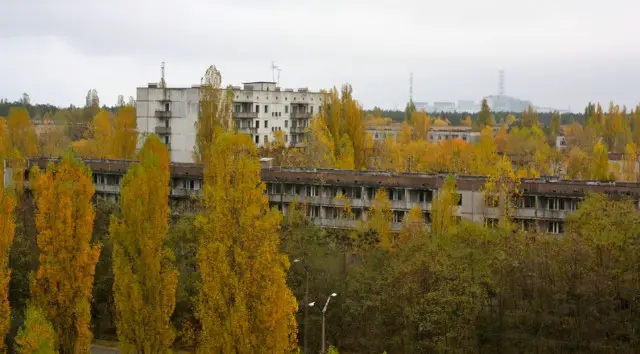Daft Old Duffer returns. Guest opinion articles do not necessarily reflect the views of the publication. Ed
I came across a startling fact this week.
When a group of researchers visited the Chernobyl nuclear disaster site recently, to check on the effects of long term radiation, they expected, of course, to find a desolate wilderness.
Garden of Eden
What they found instead was a garden of Eden swarming with animal, insect and bird life.
Apparently the radiation so deadly to humans was far less so to any and every other living thing.
One of the research team is quoted as saying
“The countryside is beautiful. The animals and plants are now in greater numbers than if the reactor had not gone down. The ecosystem is as it was before humans started living there.”
And he added
“It seems as though normal human activities ….. are more destructive than the world’s worst nuclear meltdown.”
(New Statesman 23 August 2013)
A slow, natural decay
So dramatic is this discovery that there is now a proposal that as the host of ageing power station reactors are shut down across the world they are not encased in concrete to contain the radiation but instead left to decay at their own pace.
Creating national parks more effective – because of the deadly effects on any human trespasser – than any set up by decree.
I would have thought this last highly unlikely. But it surely gives rise to another point.
The human race an infestation
If one day the ultimate nuclear disaster wipes all humankind from the face of the earth, Nature will surely give a sigh of relief and go back to flourishing as she did before we arrived.
For, as I have long believed, the human race is not the ultimate development of life, not the final triumph of Nature, but an infestation. A disease swarming over and devouring everything in its path. Just as an infection destroys our organs before moving on to attack its next victim
God, the laboratory scientist
Such self destruction is, perhaps unfortunately, also rather unlikely however.
More probable is that, just as hostile bacteria devour all before it and then move on to another victim, we will vacate our present host and move on to some other planet where life exists. There to repeat our destructive ways.
Indeed, we are already exploring was to do this.
Perhaps God is a laboratory scientist watching to see how the bacillus he created develops and expands. Giving the occasional judicious poke of disaster or triumph just to see how we react.
Image: Kyle Taylor under CC BY 2.0



